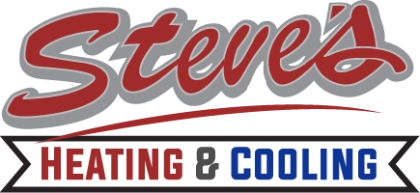Give us a call now for an immediate match with a local pro.
Click to Call(833) 824-3371(833) 824-3371
Last Updated: February 25, 2025
If you're like the typical American homeowner, over half of your energy bill (55%, per the Department of Energy) goes toward heating and cooling your home. Since cooling and heating represent such a significant chunk of your utility bills, you'll want to make sure the HVAC system in your Kansas City home is functioning properly.
Our guide to Kansas City's top HVAC companies can help you save money by getting your HVAC system installed, repaired or replaced for a fair price by a skilled worker.

Our Rating
User Rating
Reliable customer support
Informative resources
Prompt service delivery
Clear pricing policy
Free quotes
Services Offered

Our Rating
User Rating
Clear pricing policy
Free quotes
Services Offered

Our Rating
User Rating
Free quotes
Clear pricing policy
Services Offered

Our Rating
User Rating
Prompt service delivery
Informative resources
Clear pricing policy
Reliable customer support
Free quotes
Services Offered

Our Rating
User Rating
Reliable customer support
Clear pricing policy
Informative resources
Prompt service delivery
Free quotes
Services Offered

Our Rating
User Rating
Reliable customer support
Free quotes
Services Offered

Our Rating
User Rating
Reliable customer support
Clear pricing policy
Informative resources
Services Offered

Our Rating
User Rating
Reliable customer support
Free quotes
Clear pricing policy
Prompt service delivery
Services Offered

Our Rating
User Rating
Clear pricing policy
Free quotes
Reliable customer support
Informative resources
Services Offered

Our Rating
User Rating
Prompt service delivery
Reliable customer support
Clear pricing policy
Services Offered
Today's Homeowner looks at dozens of datapoints on hvac companies to come up with our data-driven rankings. It's not possible for a company to pay for preferential treatment in our rankings. We look at the following key factors in determining who should top our list:
An HVAC system that's broken or old likely needs professional attention for repairs or replacement. Watch for these signals that your system needs service:
If you notice any of these HVAC issues, we recommend having a technician inspect your system. A local professional can diagnose problems and let you know whether whether fixing or replacing your HVAC unit is the best solution.
HVAC installation or maintenance costs vary depending on your system. Common HVAC unit varieties include the following:
HVAC maintenance prices vary based on the specific services required. HVAC systems can be complicated and potentially require a number of services. Fees for typical jobs are as follows:
| HVAC Unit Type | Cost | |
|---|---|---|
| Split | $1,848-$4,712 | |
| Hybrid Split | $3,745-$6,900 | |
| Heat Pump | $2,900-$29,548 | |
| Packaged Heating and Air | $243-$404 |
Essential HVAC maintenance is important, but can be pricey. Thankfully, there are steps homeowners can take to reduce wear and tear on their system and lower future maintenance needs.
| Service | Cost | |
|---|---|---|
| Filter Replacement | $61-$162 | |
| Condensor Cleaning | $1,213-$3,640 | |
| Thermostat Repair | $81-$202 | |
| Ductwork Cleaning | $388-$971 |
Finding the right HVAC company is vital for an easy installation or repair. An experienced, credentialed HVAC contractor gives you confidence your system can provide consistent heating and air conditioning year-round.
Request estimates from at least three HVAC companies. Describe your issues and ask if technicians can inspect your system in person. Compare each provider's diagnoses, recommended solutions, estimated cost, warranties, and timelines. Avoid companies that pressure you or demand payment before work.
Choose an HVAC company with highly trained technicians who have proper licensing and experience. HVAC contractors in all states have federal requirements set by the Environmental Protection Agency (EPA). To obtain the EPA Section 608 Technician Certification, a contractor must pass an exam (the type of exam depends on the kind of equipment they intend to work with). Section 608 certification is required for all technicians who "maintain, service, repair or dispose of equipment that could release refrigerants into the atmosphere." All other licensing requirements are handled at the state level.
The state of Missouri doesn't have state-level HVAC contractor licensing requirements; however, most municipalities have local requirements. It's in your best interest to check with your local government to understand requirements for licenses such as HVAC Contractor or HVAC Journeyman Contractor. You can also verify that a company holds a valid business license. You should also read reviews and complaints on sites like Google Reviews, Yelp, and the Better Business Bureau (BBB). Choose a company with positive reviews and testimonials about great customer experiences.
Always make sure you understand what a company’s process looks like. When HVAC repairs are needed, ask your provider to list which parts require replacement and why. Confirm that your technician will clean and test the system at the end of the job to ensure proper operation. When replacing your HVAC system, request that the installation company describe the new brand, features, energy efficiency, model, and estimated installation time. Before signing a contract, ask how your provider plans to accurately size the unit for your home and how much it will cost.
Reliable HVAC companies provide warranties for their work. The broader the coverage, the better, so make sure to compare warranties between companies. Choose the one that gives you the most coverage at a reasonable cost.
Get a written quote before HVAC work begins. A comprehensive quote includes both materials and labor costs. Make sure you understand and accept all terms before signing the contract.
You should have your HVAC system inspected approximately twice yearly. Following an inspection, your technician will tell you if any services are required. You should also have your system inspected if you notice new issues such as unusual smells, strange noises, or leaks. If your home has ductwork, you should have it inspected every few years.
Usually, it's a good idea to have your HVAC system inspected in the spring and fall, as these times tend to be less busy. This also helps get your system ready for the summer and winter, when it likely sees the most use.
You can save energy throughout the year by making it easier for your HVAC system to maintain the temperature of your home. During all seasons, keep your thermostat as close to the outside temperature as you can, and avoid making drastic changes — adjust it only a few degrees at a time. You could also consider a smart thermostat.
For a 2,000-square-foot home, you need around 2.5 to 5 tons of air conditioning capacity. For a house over 1,000 square feet, central air will usually be more effective for cooling than window units.
For a 2,000-square-foot home, you should also look for a furnace that is between 50,000 and 80,000 BTUs (British thermal units).
Your HVAC company may offer financing options via a third-party lender, or you might choose to obtain a loan on your own. It's smart to discuss payment options with your HVAC company and a financial advisor to make sure that you're choosing the best option for you.
There are several ways you can make your HVAC system more energy-efficient:
